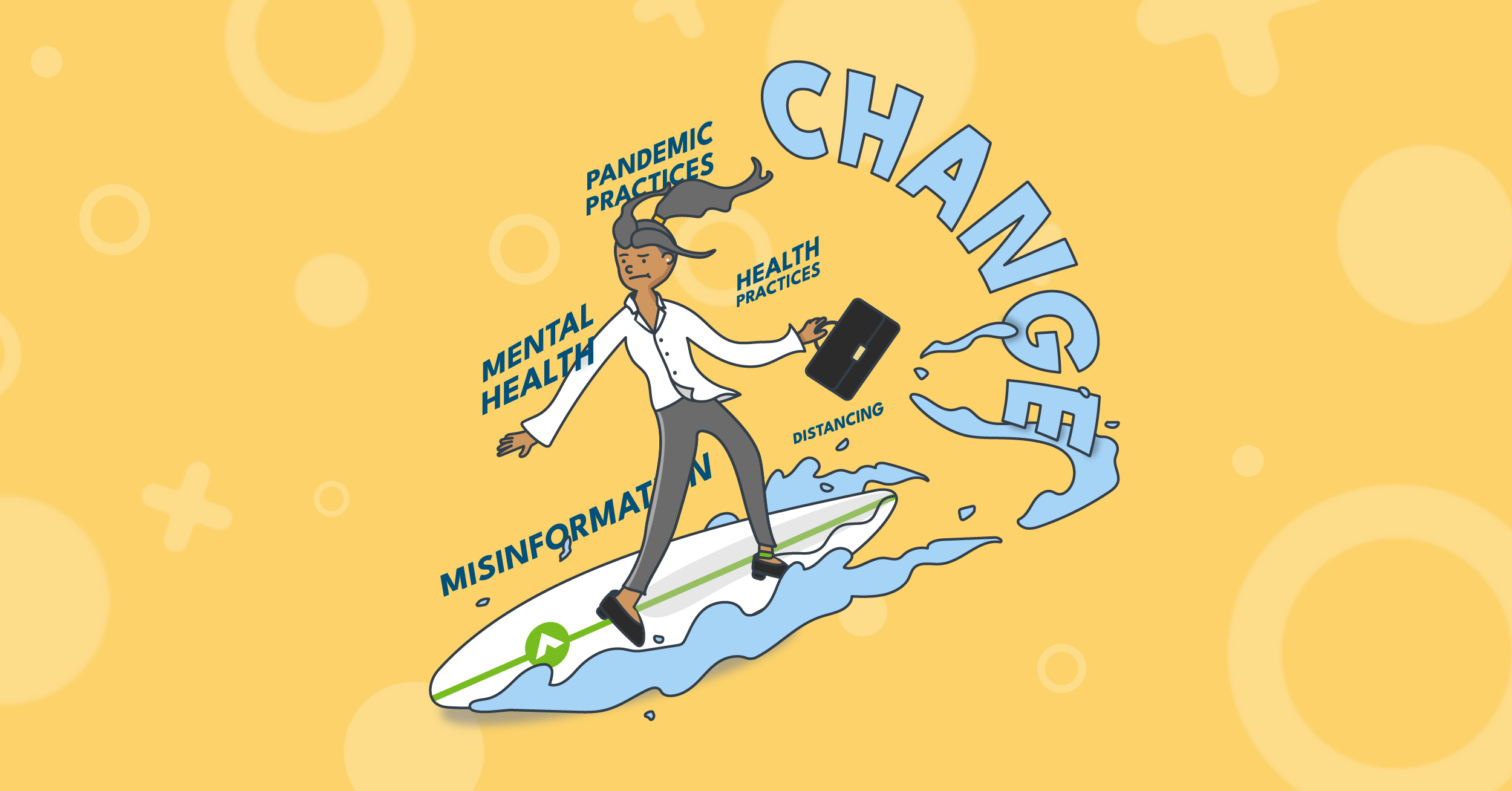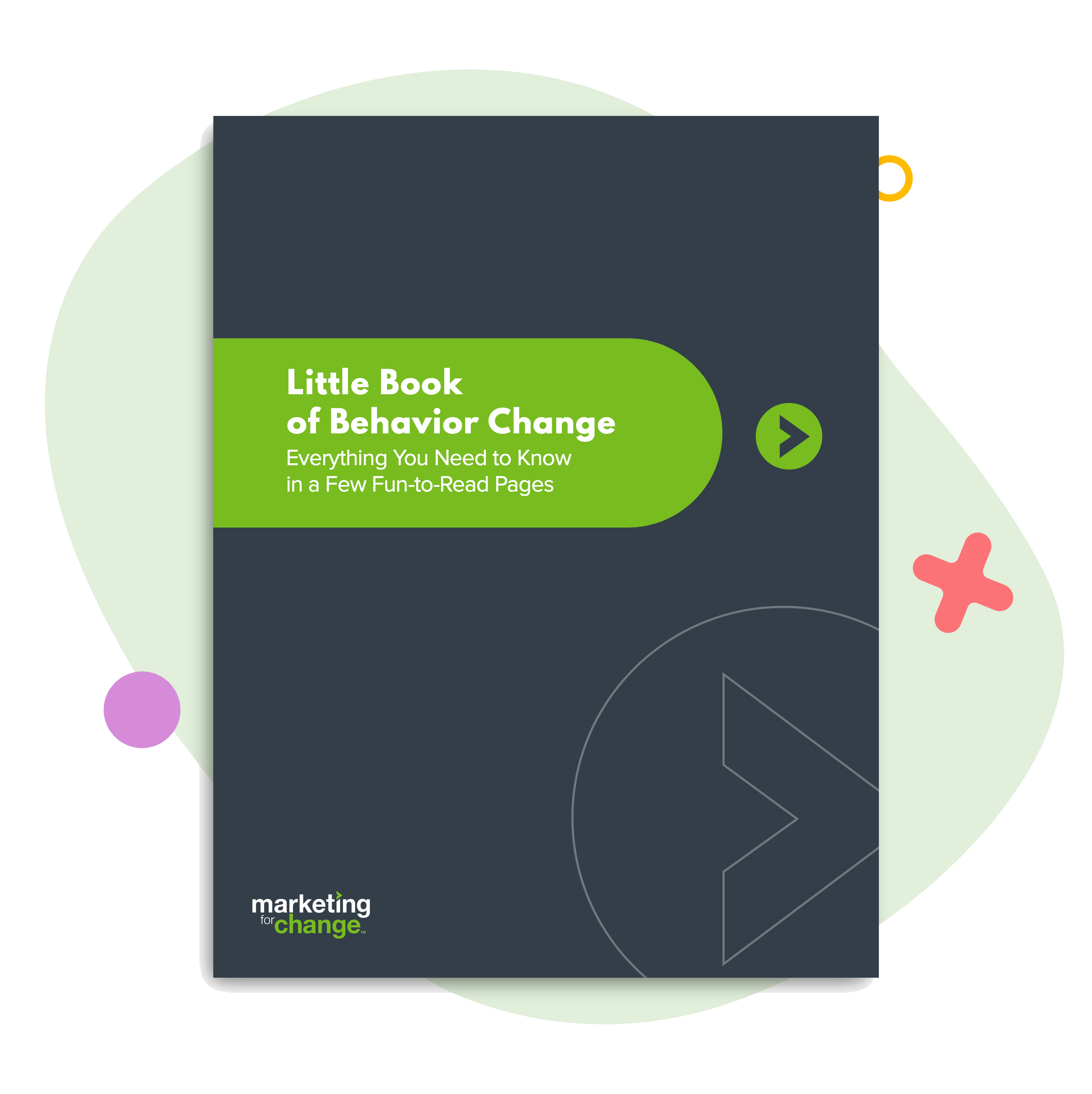
Why Do-Gooders Hate the Term Social Marketing
First of all, this isn’t about me. I consider myself a proud member of the do-gooder social marketing army. I just as proudly wave the banner of social marketing as one of the most effective tools in the toolbox for advancing positive social change. I’ve made a career of working with my colleagues to prove — via highly effective and well-evaluated programs — that social marketing can deliver on our collective motivation to influence behavior toward the better.
But I’ve spent a long career trying to get my fellow do-gooders in government, foundations and charities to embrace the term “social marketing” with only indifferent success. I’ve come to the conclusion that the resistance (and, at times, downright hostility) comes from a deeper place than their often-expressed suspicions of commercial sector actors’ motivations and practices.
In my recent blog post, Why Clever is King in Social Marketing, I argued that while social marketers have debated (endlessly, it seems) how to define and distinguish our field from other approaches to influencing people’s behavior, no one had disputed that marketing is its central organizing construct. I took issue with this. I believe it is a fundamental mistake to define social marketing as a “subdiscipline” of marketing. Instead, I believe social marketing is a unique, multi-disciplinary approach to influencing behavior that creatively harnesses concepts and insights from marketing, social science and communication.
The problem with value-exchange as an organizing principle
My argument stirred considerable interest and some spirited defenses of the centrality of the marketing construct to our field. The argument I heard most consistently was that social marketing and commercial marketing shared the concept of “value exchange” as a central tenet and organizing principle. Here’s how Nancy Lee and Phillip Kotler describe this in their very valuable textbook, Social Marketing: Changing Behavior for the Good.
“Social marketing is unique with respect to other behavior change tools in that the offer that is made is based on an understanding of the target audience’s perceived self-interest, which will be rewarded for performing the desired behavior. The concept of value exchange states that consumers will choose a behavior in exchange for receiving benefits they consider valuable…”
The principle of “value exchange” is indeed one of our most powerful ideas for planning interventions to change behavior for the better. But a social scientist brings a different mindset to this construct than a commercial marketing expert.
Lessons from a public radio membership drive
Commercial marketing focuses on the exchanges between a business and another business (B2B) or a business and consumers (B2C). But to universally apply this commercial context to all exchanges ignores a fundamental distinction social science researchers have made (notably, Margaret Clark and Judson Mills) between what they call “exchange” and “communal” relationships. “Exchange” relationships follow the dictionary definition of commercial transactions, where benefits are provided with the expectation that one will receive benefits of comparable value in return. In contrast, “communal” relationships follow a different set of norms in which benefits are provided based on perceived needs or simply to please the other. The simplest way to convey the difference between exchange and communal social contexts is that we take the price tag off the wine bottle before we bring it to a party, but we never remove that price tag until after we’ve paid for it.
I made a very useful application of this distinction about 35 years ago, just before embarking on my career in social marketing. At that time I was a young marketing professor and a big fan of our local Washington, D.C., public radio station, WAMU. During the biannual fundraising telethon pitch, I noted that the announcer said, “Pledge $25 to become a member of WAMU, but as an incentive to pledge $35, we’ll send you a WAMU-emblazoned coffee mug with your membership packet.”
If I’d only applied a straightforward social marketing lens to this pitch, I would have judged that the psychological benefits of the mug — e.g., the gratifying reminder of my giving nature every morning, the occasional social signal of my generosity and erudite radio listening habits to visitors — were worth the extra $10 of my hard-earned professor salary. I’d add these benefits to the psychological benefits of being a “member” of a radio station that entitles me to listen to a radio station that I could, of course, listen to for free, albeit not guilt-free.
But, instead, I applied the lens of an experimental social psychologist. When I called to make my pledge ($35, by the way), I told the pledge drive volunteer: “I’m a psychologist and, without going into the theory, I recommended that you stop talking about the mug offer as an ‘incentive,’ but instead as an ‘appreciation’ for a more generous pledge.” The following morning, I was pleasantly surprised to hear the announcer saying “appreciation” rather than “incentive!” I called back to ask why they took my advice. The response was “everyone just thought it was a good idea.” Happily for me, the station allowed me to formally test the “incentive” versus “appreciation” promotion six months later and we documented that the station received a higher proportion of pledges for mugs on the fundraising day randomly assigned to “appreciation” than the one assigned to “incentive.”
We are engaged in a fundamentally communal enterprise
I draw three conclusions.
First, having remained a fan and supporter of WAMU for the past 35 years, I have never once heard anything but the communal language of “appreciation” when announcers describe the premiums they will give supporters at various levels. I consider my advice to therefore be, cumulatively, one of the largest (though sadly, not tax-deductible) charitable contributions ever made to NPR!
Second, I think this experience (and many others I’ve had over my career) reinforces my belief that social marketing is better conceived of (and practiced as) a unique and multi-disciplinary field, not a subdiscipline of commercial marketing. While I believe that the straightforward application of value exchange concept provides important insights into encouraging behavior change (as in my analysis of why offering premiums generates greater generosity among listeners), I also believe even this central tenet of commercial marketing must be enlarged and enriched by the social science and communication disciplines if we are to understand and harness the complexity of behavioral influence.
Finally, I believe the mistaken premise that social marketing is founded solely on the construct of commercial exchange offers a key insight into the deeply rooted distaste for our nomenclature expressed by public service and non-profit cause partners and clients. If we dismiss their persistent negative response to the term “marketing” as only a signaling of a surface distrust of commercial sector actors and motives, we miss something much deeper: their intuitive and spot-on recognition that we are engaged a fundamentally communal enterprise.
And that words matter.





